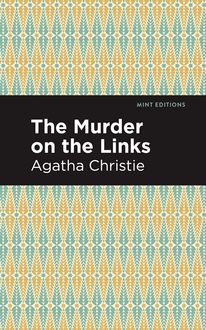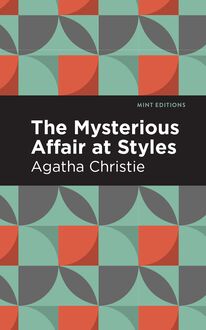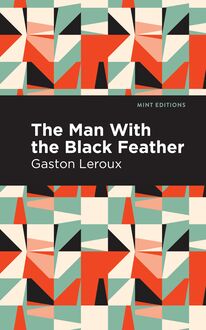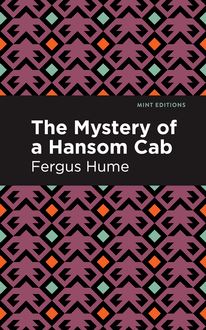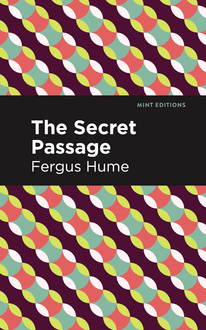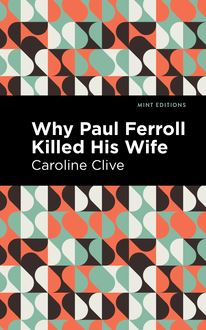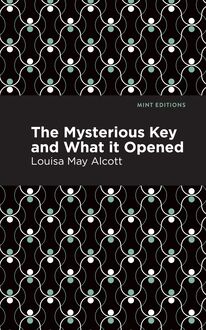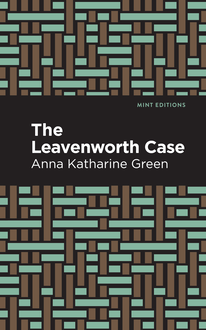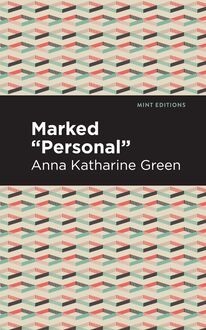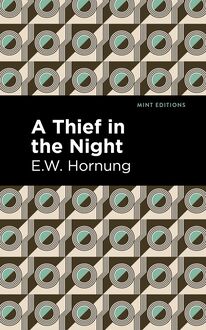-
 Univers
Univers
-
 Ebooks
Ebooks
-
 Livres audio
Livres audio
-
 Presse
Presse
-
 Podcasts
Podcasts
-
 BD
BD
-
 Documents
Documents
-
- Cours
- Révisions
- Ressources pédagogiques
- Sciences de l’éducation
- Manuels scolaires
- Langues
- Travaux de classe
- Annales de BEP
- Etudes supérieures
- Maternelle et primaire
- Fiches de lecture
- Orientation scolaire
- Méthodologie
- Corrigés de devoir
- Annales d’examens et concours
- Annales du bac
- Annales du brevet
- Rapports de stage
La lecture à portée de main
Vous pourrez modifier la taille du texte de cet ouvrage
Découvre YouScribe en t'inscrivant gratuitement
Je m'inscrisDécouvre YouScribe en t'inscrivant gratuitement
Je m'inscrisEn savoir plus
Vous pourrez modifier la taille du texte de cet ouvrage
En savoir plus

Description
The Dead Letter (1867) is a detective novel by Metta Victoria Fuller Victor. Published under the pseudonym Seeley Regester, The Dead Letter is the first full-length work of crime fiction in American literature. “I paused suddenly in my work. Over a year’s experience in the Dead Letter office had given a mechanical rapidity to my movements in opening, noting and classifying the contents of the bundles before me […] Young ladies whose love letters have gone astray, evil men whose plans have been confided in writing to their confederates, may feel but little apprehension of the prying eyes of the Department.” Richard Redfield is accustomed to boredom in his role as inspector at the post office’s dead letter department. Tasked with reviewing the contents of undeliverable letters, Redfield is shocked to discover a clue to the death of his friend two years prior. With the help of Detective Burton, Redfield sets out to uncover the truth, which he hopes will provide belated justice for Henry and peace for his bereaved fiancée Eleanor. With a beautifully designed cover and professionally typeset manuscript, this edition of Metta Victoria Fuller Victor’s The Dead Letter is a classic of American crime fiction reimagined for modern readers.
Sujets
Informations
| Publié par | Mint Editions |
| Date de parution | 28 septembre 2021 |
| Nombre de lectures | 0 |
| EAN13 | 9781513294377 |
| Langue | English |
Informations légales : prix de location à la page 0,0500€. Cette information est donnée uniquement à titre indicatif conformément à la législation en vigueur.
Extrait
The Dead Letter
Metta Victoria Fuller Victor
The Dead Letter was first published in 1866.
This edition published by Mint Editions 2021.
ISBN 9781513291529 | E-ISBN 9781513294377
Published by Mint Editions®
minteditionbooks.com
Publishing Director: Jennifer Newens
Design & Production: Rachel Lopez Metzger
Project Manager: Micaela Clark
Typesetting: Westchester Publishing Services
C ONTENTS P ART I I . T HE L ETTER II . E VENTS OF A N IGHT III . T HE F IGURE B ENEATH THE T REES IV . M ORELAND V ILLA V . M R. B URTON, THE D ETECTIVE VI . T WO L INKS IN THE C HAIN VII . E LEANOR VIII . T HE H AUNTED G RAVE IX . T HE S PIDER AND THE F LY X . T HE A NNIVERSARY XI . T HE L ITTLE G UEST AND THE A PPARITION XII . T HE N IGHT IN M ORELAND V ILLA XIII . T HE S HADOW A SSUMES S HAPE P ART II I . T HE L ETTER II . O UR V ISITS III . T HE C ONFESSION IV . E MBARKED FOR C ALIFORNIA V . O N THE T RAIL VI . A T L AST— A T L AST VII . N OW FOR H OME A GAIN VIII . T HE R IPE H OUR IX . J OINING THE M ISSING L INKS X . T HE N EW L IFE
PART I
I
T HE L ETTER
I paused suddenly in my work. Over a year’s experience in the Dead Letter office had given a mechanical rapidity to my movements in opening, noting and classifying the contents of the bundles before me; and, so far from there being anything exciting to the curiosity, or interesting to the mind, in the employment, it was of the most monotonous character.
Young ladies whose love letters have gone astray, evil men whose plans have been confided in writing to their confederates, may feel but little apprehension of the prying eyes of the Department; nothing attracts it but objects of material value—sentiment is below par; it gives attention only to such tangible interests as are represented by bank-bills, gold-pieces, checks, jewelry, miniatures, et cetera. Occasionally a grave clerk smiles sardonically at the ridiculous character of some of the articles which come to light; sometimes, perhaps, looks thoughtfully at a withered rosebud, or bunch of pressed violets, a homely little pin-cushion, or a book-mark, wishing it had reached its proper destination. I cannot answer for other employees, who may not have even this amount of heart and imagination to invest in the dull business of a Government office; but when I was in the Department I was guilty, at intervals, of such folly—yet I passed for the coldest, most cynical man of them all.
The letter which I held in my paralyzed fingers when they so abruptly ceased their dexterous movements, was contained in a closely-sealed envelope, yellowed by time, and directed in a peculiar hand to “John Owen, Peekskill, New York,” and the date on the stamp was “October 18th, 1857”—making the letter two years old. I know not what magnetism passed from it, putting me, as the spiritualists say, en rapport with it; I had not yet cut the lappet; and the only thing I could fix upon as the cause of my attraction was, that at the date indicated on the envelope, I had been a resident of Blankville, twenty miles from Peekskill—and something about that date!
Yet this was no excuse for my agitation; I was not of an inquisitive disposition; nor did “John Owen” belong to the circle of my acquaintance. I sat there with such a strange expression upon my face, that one of my fellows, remarking my mood, exclaimed jestingly:
“What is it, Redfield? A check for a hundred thousand?”
“I am sure I don’t know; I haven’t opened it,” I answered, at random; and with this I cut the wrapper, impelled by some strongly-defined, irresistible influence to read the time-stained sheet inclosed. It ran in this wise:
D EAR S IR
It’s too bad to disappoint you. Could not execute your order, as everybody concerned will discover. What a charming day!—good for taking a picture. That old friend I introduced you to won’t tell tales, and you had not better bother yourself to visit him. The next time you find yourself in his arms, don’t feel in his left-hand pocket for the broken tooth-pick which I lent him. He is welcome to it. If you’re at the place of payment, I shan’t be there, not having fulfilled the order, and having given up my emigration project, much against my will; so, govern yourself accordingly. Sorry your prospects are so poor, and believe me, with the greatest possible esteem,
Your disappointed N EGOTIATOR
To explain why this brief epistle, neither lucid nor interesting in itself, should affect me as it did, I must go back to the time at which it was written.
II
E VENTS OF A N IGHT
It was late in the afternoon of a cloudy, windy autumn day, that I left the office of John Argyll, Esq., in his company, to take tea and spend the evening in his family. I was a law-student in the office, and was favored with more than ordinary kindness by him, on account of a friendship that had existed between him and my deceased father. When young men, they had started out in life together, in equal circumstances; one had died early, just as fortune began to smile; the other lived to continue in well-earned prosperity. Mr. Argyll had never ceased to take an interest in the orphan son of his friend. He had aided my mother in giving me a collegiate education, and had taken me into his office to complete my law studies. Although I did not board at his house, I was almost like a member of the family. There was always a place for me at his table, with liberty to come and go when I pleased. This being Saturday, I was expected to go home with him, and stay over Sunday if I liked.
We quickened our steps as a few large drops were sprinkled over us out of the darkening clouds.
“It will be a rainy night,” said Mr. Argyll.
“It may clear away yet,” I said, looking toward a rift in the west, through which the declining sun was pouring a silver stream. He shook his head doubtfully, and we hurried up the steps into the house, to escape the threatened drenching.
Entering the parlors, we found no one but James, a nephew of Mr. Argyll, a young man of about my own age, lounging upon a sofa.
“Where are the girls?”
“They haven’t descended from the heavenly regions yet, uncle.”
“Dressing themselves to death, I expect—it’s Saturday evening, I remember,” smiled the indulgent father, passing on into the library.
I sat down by the west window, and looked out at the coming storm. I did not like James Argyll much, nor he me; so that, as much as we were thrown together, our intercourse continued constrained. On this occasion, however, he seemed in excellent spirits, persisting in talking on all kinds of indifferent subjects despite of my brief replies. I was wondering when Eleanor would make her appearance.
At last she came. I heard her silk dress rustle down the stairs, and my eyes were upon her when she entered the room. She was dressed with unusual care, and her face wore a brilliant, expectant smile. The smile was for neither of us. Perhaps James thought of it; I am sure I did, with secret suffering—with a sharp pang which I was ashamed of, and fought inwardly to conquer.
She spoke pleasantly to both of us, but with a preoccupied air not flattering to our vanity. Too restless to sit, she paced up and down the length of the parlors, seeming to radiate light as she walked, like some superb jewel—so lustrous was her countenance and so fine her costume. Little smiles would sparkle about her lips, little trills of song break forth, as if she were unconscious of observers. She had a right to be glad; she appeared to exult in her own beauty and happiness.
Presently she came to the window, and as she stood by my side, a burst of glory streamed through the fast-closing clouds, enveloping her in a golden atmosphere, tinting her black hair with purple, flushing her clear cheeks and the pearls about her throat. The fragrance of the rose she wore on her breast mingled with the light; for a moment I was thrilled and overpowered; but the dark-blue eyes were not looking on me—they were regarding the weather.
“How provoking that it should rain tonight,” she said, and as the slight cloud of vexation swept over her face, the blackness of night closed over the gleam of sunset, so suddenly that we could hardly discern each other.
“The rain will not keep Moreland away,” I answered.
“Of course not—but I don’t want him to get wet walking up from the depot; and Billy has put up the carriage in view of the storm.”
At that moment a wild gust of wind smote the house so that it shook, and the rain came down with a roar that was deafening. Eleanor rung for lights.
“Tell cook to be sure and have chocolate for supper—and cream for the peaches,” she said to the servant who came in to light the gas.
The girl smiled; she knew, in common with her mistress, who it was preferred chocolate and liked cream with peaches; the love of a woman, however sublime in some of its qualities, never fails in the tender domestic instincts which delight in promoting the comfort and personal tastes of its object.
“We need not have troubled ourselves to wear our new dresses,” pouted Mary, the younger sister, who had followed Eleanor downstairs “there will be nobody here tonight.”
Both James and myself objected to being dubbed nobody. The willful young beauty said all the gay things she pleased, telling us she certainly should not have worn her blue silks, nor puffed her hair for us—
“—Nor for Henry Moreland either—he never looks at me after the first minute. Engaged people are so stupid! I wish he and Eleanor would make an end of it. If I’m ever going to be bridemaid, I want to be—”
“And a clear field afterward, Miss Molly,” jested her cousin. “Come! play that new polka for me.”
“You couldn’t hear it if I did. The rain is playing a polka this evening, and the wind is dancing to it.”
He laughed loudly—more loudly than the idle fancy warranted. “Let us see if we cannot make more noise than the storm,” he said, going to the piano and thumping out the most thunderous piece that he could recall. I was not a
-
 Univers
Univers
-
 Ebooks
Ebooks
-
 Livres audio
Livres audio
-
 Presse
Presse
-
 Podcasts
Podcasts
-
 BD
BD
-
 Documents
Documents
-
Jeunesse
-
Littérature
-
Ressources professionnelles
-
Santé et bien-être
-
Savoirs
-
Education
-
Loisirs et hobbies
-
Art, musique et cinéma
-
Actualité et débat de société
-
Jeunesse
-
Littérature
-
Ressources professionnelles
-
Santé et bien-être
-
Savoirs
-
Education
-
Loisirs et hobbies
-
Art, musique et cinéma
-
Actualité et débat de société
-
Actualités
-
Lifestyle
-
Presse jeunesse
-
Presse professionnelle
-
Pratique
-
Presse sportive
-
Presse internationale
-
Culture & Médias
-
Action et Aventures
-
Science-fiction et Fantasy
-
Société
-
Jeunesse
-
Littérature
-
Ressources professionnelles
-
Santé et bien-être
-
Savoirs
-
Education
-
Loisirs et hobbies
-
Art, musique et cinéma
-
Actualité et débat de société
- Cours
- Révisions
- Ressources pédagogiques
- Sciences de l’éducation
- Manuels scolaires
- Langues
- Travaux de classe
- Annales de BEP
- Etudes supérieures
- Maternelle et primaire
- Fiches de lecture
- Orientation scolaire
- Méthodologie
- Corrigés de devoir
- Annales d’examens et concours
- Annales du bac
- Annales du brevet
- Rapports de stage
